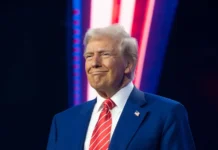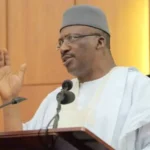U.S. President Donald Trump’s nominee was, on Saturday, elected president of the Inter-American Development Bank, the region’s main economic development lender, making him the first U.S. citizen to lead the institution in its 61-year history.
Mauricio Claver-Carone, Trump’s senior Latin America adviser, told the bank’s governors before voting began that he would be “a passionate advocate” for the bank, its staff and the region.
He will take office on Oct. 1 and has pledged to serve only one five-year term.
Trump’s decision to nominate a U.S. candidate to head the bank broke with a tradition for the president to come from the region and sparked criticism from some Latin American countries, development groups and the European Union.
But Claver-Carone won the backing of a majority of countries in the region.
Thirty of the Bank’s 48 governors voted for Claver-Carone, including 23 from the region, amounting to 66.8 per cent of the vote, a spokesman for the U.S. National Security Council said.
A source familiar with the vote said 16 countries abstained.
Argentina, Mexico, Chile and Costa Rica – concerned about the longer-term precedent of the move – initially sought to delay the vote but failed to win sufficient backing to do so.
The IDB vote turned into a geopolitical battle between the Trump administration, which is keen to gain leverage in resource-rich Latin America and counter the rise of China, and some in the region who wanted to retain control of the top job.
Some countries also were concerned about Claver-Carone, a Trump loyalist, if Trump loses the Nov. 3 presidential election to Democrat Joe Biden, whose campaign also criticised the nomination of the Cuba hawk.
Claver-Carone said he would work with member countries to “strengthen the bank, respond to the needs of the region and create opportunities for shared prosperity and economic growth’’.
The IDB has been led by Latin Americans, with an American in the No. 2 job, since the institution’s inception in 1959.
Critics say electing Claver-Carone to head the bank and his pledge to appoint a Latin American as executive vice president sets a precedent that could harm Washington in the end by loosening its hold on the bank’s No. 2 post.
Senator Patrick Leahy, the top Democrat on the Senate Appropriations Committee, said the vote raised questions about Latin Americans “charting their own future” and signalled it could have consequences for U.S. funding of the institution.
“I have always believed that to be successful, countries need to take responsibility for their own development, and the U.S. should play a supportive role.
“Those roles have now been reversed and we need to review whether this is the best use of resources to assist the people of those countries,’’ Leahy said in a statement to Reuters. (Reuters/NAN)










